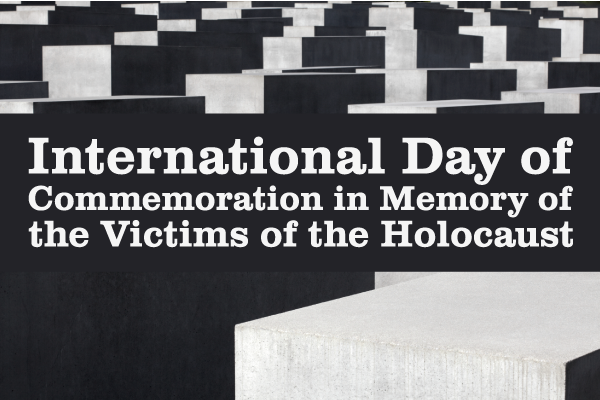
I have learned that the Holocaust was a unique and uniquely Jewish event, albeit with universal implications. Not all victims were Jews, but all Jews were victims. I have learned the danger of indifference, the crime of indifference. For the opposite of love, I have learned, is not hate but indifference. Jews were killed by the enemy but betrayed by their so-called allies who found political reasons to justify their indifference or passivity.1
– Elie Wiesel, a Romanian-born Jewish American and Holocaust survivor
It was on January 27, 1945 that the Soviet Army liberated the survivors at the Auschwitz concentration camp. The Soviets found a little more than 7000 prisoners; a dismally small number compared to the 1.1 million prisoners murdered at Auschwitz between 1940 and 1945.2
The greatest victims of the Holocaust were Jews, whom Hitler had targeted for genocide. Over 6 million Jewish men, woman and children lost their lives during the Holocaust. Many suffered and toiled in concentration camps that dotted the map from eastern France to modern-day Belarus.
After the war, over 40,000 Holocaust survivors immigrated to Canada.3 Many Jews settled in Montreal, where their French was a great asset. Even in Canada, the Jewish community had to combat discrimination. In 1946, they even had to bring a case against the City of Quebec for preventing them to erect a synagogue.4 By the late 1940s, human rights legislation removed common discriminatory practices.5
A number of other victims also lost their lives during the Holocaust. Among them were millions of Ukrainians and Russians, including many Russian prisoners of war. Millions of Poles and Yugoslavians were also killed. There were also tens of thousands of Gypsies, mentally and physically disabled persons, gay men and Spanish Republicans. Thousands of Jehovah’s Witnesses were also killed – and it’s unknown how many communists, political prisoners, resistance fighters and trade unionists lost their lives.6
Sadly, genocide is not yet part of our past. Many countries are still at risk of genocide and politicide, including Syria, Pakistan, Ethiopia, the Democratic Republic of the Congo and Nigeria.7
There are many signs that can signal an impending genocide. Perhaps the most troubling is a tendency to create out-groups, which are then stripped of their humanity.8 During the Holocaust, the Nazis regarded Jews as “parasitic vermin.”9 In Rwanda, the Tutsis were often compared to cockroaches.10
On this day, let’s pay honour to the victims of the Holocaust. Let’s also remember to never be a passive bystander; there are countless who paid the ultimate price for others’ indifference.
1. Remarks on Presenting the Congressional Gold Medal to Elie Wiesel and on Signing the Jewish Heritage Week Proclamation April 19, 1985
2. The Liberation of Auschwitz, United States Holocaust Memorial Museum
3. The Canadian Encyclopedia, The Jew
4. The Canadian Jewish Chronicle – Sep 25, 1946
5. The Canadian Encyclopedia, The Jews
6. Overlooked Millions: Non-Jewish Victims of the Holocaust, Karen Silverstrim, University of Arkansas
7. Genocide Watch, 2012 Global Watch List
9. Victims of the Nazi era: Nazi racial ideology, United States Holocaust Memorial Museum